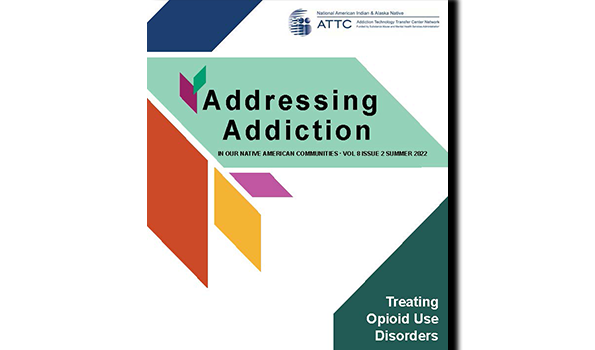Risks of Operating Without Awareness when Blindfolded

Operating any machinery or performing any task while blindfolded poses significant risks, both to the individual and to others in the vicinity. Below are some of the key hazards associated with operating without awareness:

1. Physical Injuries

- Collision: Without vision, individuals are unable to navigate their surroundings effectively, increasing the risk of bumping into objects or tripping and falling, leading to cuts, bruises, sprains, or even more severe injuries.
- Cuts and Burns: Operating machinery without visibility can lead to accidental cuts or burns, as the individual may not be able to see sharp edges or potential hazards.
- Falls: Blindfolded individuals may stumble or fall due to uneven surfaces, obstacles, or stairs, resulting in head injuries or fractures.
2. Equipment Damage
- Malfunction: Operating machinery without awareness can lead to incorrect handling, which may result in equipment malfunctions or damage.
- Errors: Lack of visibility can lead to operating errors, such as using the wrong buttons or settings, which can damage equipment or affect its performance.
- Collisions: Blindfolded individuals may accidentally collide with other objects or machinery, causing damage to both their own and others' equipment.
3. Increased Risk to Others
- Bystanders: Operating without awareness can put bystanders at risk of being injured by the individual or by the machinery being used.
- Collisions: Blindfolded individuals may not be able to avoid collisions with other people or objects, potentially causing injuries or damage to property.
- Hazardous Situations: Operating machinery without visibility can create hazardous situations for others, as the individual may not be able to identify or respond to potential dangers.
4. Legal Consequences
- Negligence: Operating machinery or performing tasks while blindfolded could be considered negligence and may result in legal liability.
- Workplace Safety Violations: Operating equipment without proper visibility violates workplace safety regulations and may lead to penalties or sanctions.
- Insurance Coverage: Operating without awareness may void insurance coverage in the event of an accident or injury.
5. Psychological Distress
- Fear and Anxiety: Operating without sight can evoke feelings of fear and anxiety, which can impair judgment and performance.
- Disorientation: Blindfolded individuals may become disoriented and confused, leading to errors or increased risk of accidents.
- Sensory Deprivation: Operating without vision can lead to sensory deprivation, which can affect cognitive function and decision-making.
It is crucial to prioritize safety and avoid operating machinery or performing tasks while blindfolded. Proper visibility and awareness are essential for ensuring the safety of individuals and others in the surrounding environment.## Walking Blindfolded: Risks Of Operating Without Awareness
Executive Summary
In today's fast-paced business environment, organizations often operate without clear awareness of their internal processes and external market dynamics. This lack of visibility can lead to significant risks, such as missed opportunities, inefficient operations, and poor decision-making. This article explores the perils of “walking blindfolded” and highlights the importance of developing and maintaining situational awareness for organizational success.
Introduction
Without awareness, businesses are like ships navigating uncharted waters without a compass. They lack the necessary insights to make informed decisions, respond effectively to changes, and anticipate potential threats. The consequences of operating blindfolded can be severe, leading to lost market share, reputational damage, and even financial ruin.
FAQs
- What is situational awareness in a business context?
Situational awareness refers to the ability of an organization to understand and assess its internal and external environment. It involves gathering, analyzing, and interpreting information from various sources to develop a comprehensive picture of the company's current state and future prospects.
- Why is it important for businesses to have situational awareness?
Situational awareness enables businesses to identify opportunities, adapt to changing conditions, and proactively manage risks. It provides the foundation for effective decision-making, resource allocation, and strategic planning.
- How can businesses improve their situational awareness?
Businesses can enhance their situational awareness through various means, including regular market research, customer feedback analysis, industry analysis, and internal performance monitoring. It is crucial to establish robust information gathering and dissemination channels to ensure that key insights reach decision-makers timely.
Top 5 Subtopics
1. Missed Opportunities
Description: Operating blindfolded can lead to businesses overlooking valuable opportunities for growth and innovation.
- Lack of market insights: Without proper awareness of customer needs and market trends, businesses may fail to identify emerging opportunities.
- Insufficient competitive analysis: Blindness to competitors' strategies and market positioning can result in missed opportunities for differentiation and market share acquisition.
- Overreliance on historical data: Solely relying on past information limits the ability to identify new trends and emerging markets.
2. Inefficient Operations
Description: Lack of situational awareness can lead to inefficient operations, wasting time and resources.
- Poor resource allocation: Without a clear understanding of priorities and resource constraints, businesses may allocate resources inefficiently, leading to wasted effort and missed goals.
- Duplication of efforts: Operating blindfolded can result in multiple teams working on similar tasks without realizing it, leading to duplication and wasted effort.
- Missed synergies: Failure to recognize potential synergies between different departments or functions can hinder collaboration and prevent the company from realizing its full potential.
3. Poor Decision-Making
Description: Operating without awareness limits the ability to make informed decisions, leading to costly mistakes.
- Limited information availability: Decision-makers may lack access to critical information or may not be aware of relevant trends when making decisions.
- Cognitive biases: Blindness to one's own biases can lead to flawed decision-making, resulting in missed opportunities or poor outcomes.
- Inaccurate assumptions: Operating without awareness can lead to making decisions based on faulty or outdated assumptions, which can have disastrous consequences.
4. Unmanaged Risks
Description: Lack of situational awareness can lead to businesses failing to identify and mitigate potential risks.
- Missed early warning signs: Without proper monitoring and analysis, businesses may miss early warning signs of potential threats, leading to delayed response and increased vulnerability.
- Insufficient contingency planning: Blindness to potential risks can hinder the ability to develop effective contingency plans, increasing the likelihood of disruption and reputational damage.
- Internal weaknesses: Lack of awareness can expose internal weaknesses, such as operational vulnerabilities or financial instability, making a company more susceptible to exploitation.
5. Lost Market Share
Description: Businesses operating blindfolded can lose market share to competitors who have a clearer understanding of the market dynamics.
- Failure to adapt: Without awareness of changing customer preferences and market trends, businesses may fail to adapt their products or services accordingly, leading to loss of market share.
- Competitive encroachment: Competitors with greater situational awareness may identify opportunities to encroach on a company's market share by offering superior products or services.
- Customer churn: Operating blindfolded can lead to poor customer experiences, resulting in customer churn and lost market share.
Conclusion
Operating without awareness is a dangerous game that can have severe consequences for businesses. To succeed in today's competitive landscape, it is essential for organizations to develop and maintain situational awareness. By understanding their internal and external environment, businesses can identify opportunities, mitigate risks, and make informed decisions that drive growth and success. The ability to “walk with eyes wide open” empowers organizations to navigate the complexities of the business world with confidence and resilience.
Keyword Tags
- Situational awareness
- Business intelligence
- Risk management
- Decision-making
- Market analysis





















































































































































 Global Online Gambling & iGaming is a full service cash Online Gambling & iGaming marketing consultancy with casino partners situated around the world.
Global Online Gambling & iGaming is a full service cash Online Gambling & iGaming marketing consultancy with casino partners situated around the world.